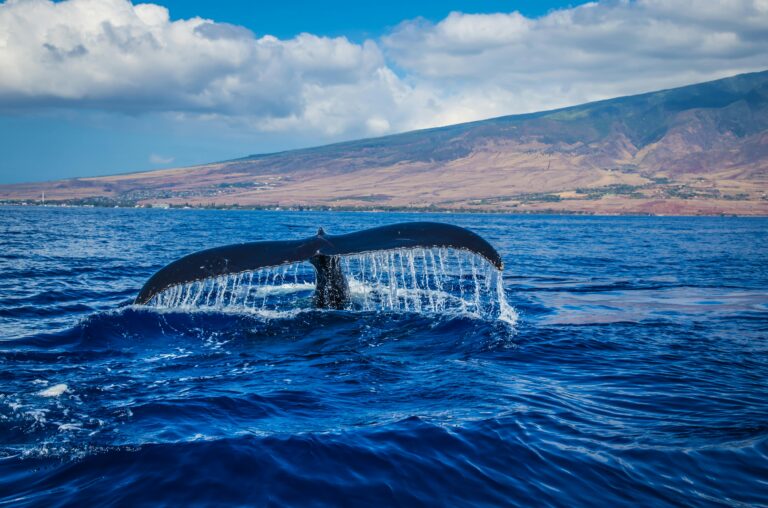Introduction to Beantown Whale Watch
Boston, often referred to as “Beantown Whale Watch” is famous for its rich history, vibrant culture, and its prime location along the Atlantic Ocean. One of the city’s most popular attractions is whale watching, drawing locals and tourists eager to see these gentle giants up close. Whale watching in Boston is not just an activity; it’s an unforgettable adventure that connects you to the majestic world of marine life.
The waters off Boston are part of the Gulf of Maine, which hosts a diverse ecosystem and a rich food supply that attracts various species of whales. Whether you’re hoping to see humpback whales breaching or finback whales gliding through the water, the Boston whale-watching experience promises to be spectacular.
The Best Time for Beantown Whale Watch in Boston
If you’re planning to embark on a whale-watching adventure, timing is everything. In Boston, the best time to go whale watching is from April to October. This period coincides with the migration patterns of several whale species that travel to the nutrient-rich waters of the Gulf of Maine to feed.
- April to June: Early in the season, you’ll often see humpback whales returning to the area. During these months, the sea is calm, and sightings are frequent.
- July to September: This is the peak whale-watching season. Warm weather and frequent sightings of multiple species make this the best time to go.
- October: As the season winds down, you can still spot whales, though the number of sightings may decrease as the whales begin their migration.
Where to Book a Beantown Whale Watch Tour
Several reputable companies are offering whale-watching tours in Boston. Some of the top-rated options include:
- Boston Harbor Cruises: Known for their knowledgeable guides and commitment to conservation, Boston Harbor Cruises offers tours that take you out to the Stellwagen Bank National Marine Sanctuary.
- Captain John Boats: Operating out of Plymouth, they provide longer tours that head toward Cape Cod Bay.
- New England Aquarium Whale Watch: Partnering with Boston Harbor Cruises, these tours are led by marine biologists from the aquarium, offering an educational experience.
When booking your tour, it’s recommended to do so online, as tours can fill up quickly, especially during the peak season.
What to Expect on a Whale Watching Tour
A typical whale-watching tour lasts between 3 to 4 hours, depending on the weather conditions and how far out the boat needs to go to find whales. Tours often provide an educational experience, with guides explaining the different species of whales, their behaviors, and the ecosystem that supports them.
Most tours offer:
- Comfortable seating
- Snacks and drinks for purchase
- Indoor and outdoor viewing areas
Preparing for Your Beantown Whale Watch Experience
What to Wear and Bring
Dress in layers, as it can get chilly on the open water, even in summer. Don’t forget to bring:
- A jacket or windbreaker
- Sunscreen and sunglasses
- Binoculars for spotting whales from afar
- A camera to capture the action
Weather Considerations
The weather on the water can be unpredictable, so it’s always a good idea to check the forecast before you head out. If you’re prone to seasickness, consider taking motion sickness medication an hour before boarding.
Types of Whales You Can See Near Boston
Boston’s waters are home to several species of whales, with the most common sightings being:
- Humpback whales: Famous for their acrobatic displays, they are often seen breaching and slapping their tails.
- Finback whales: The second-largest species of whale, known for their speed and sleek appearance.
- Minke whales: Smaller than humpbacks, but still a common sight on tours.
In addition to whales, you might also see dolphins, seals, and various species of seabirds.
Top Whale-Watching Locations Around Boston
- Stellwagen Bank National Marine Sanctuary: A federally protected marine area that serves as one of the best whale-watching spots in the world.
- Cape Cod Bay: Another prime location, especially for tours leaving from Plymouth.
- Massachusetts Bay: This area is part of many whale-watching tours that depart from Boston itself.
Eco-friendly Whale Watching Practices
Whale watching is not only about enjoying the beauty of these creatures but also about protecting them. Many Boston-based whale-watching companies adhere to eco-friendly practices, ensuring that tours don’t disturb the whales or harm their natural habitat. Responsible tourism is key to sustaining the future of whale watching and marine life.
Conclusion
Absolutely! Whether you’re a nature lover, photographer, or someone just looking for a unique adventure, whale watching in Boston is an experience you won’t want to miss. The thrill of seeing these massive creatures up close, combined with the educational value of the tours, makes it well worth the time and money.
FAQs
- How close will we get to the whales?
Boats are required to maintain a safe distance of at least 100 feet from the whales, though sometimes the whales come closer on their own. - Is whale watching safe?
Yes, whale watching is a safe activity, especially with experienced captains and guides who know how to handle the boats in various conditions. - Can I take pictures?
Absolutely! Bring your camera or smartphone, as there will be plenty of opportunities to capture the action. - What happens if we don’t see any whales?
Many companies offer a “whale sighting guarantee,” meaning you can come back for another trip if you don’t see any whales. - Is whale watching family-friendly?
Yes, it’s a fantastic activity for all ages. Kids especially love seeing the whales and learning about marine life.


